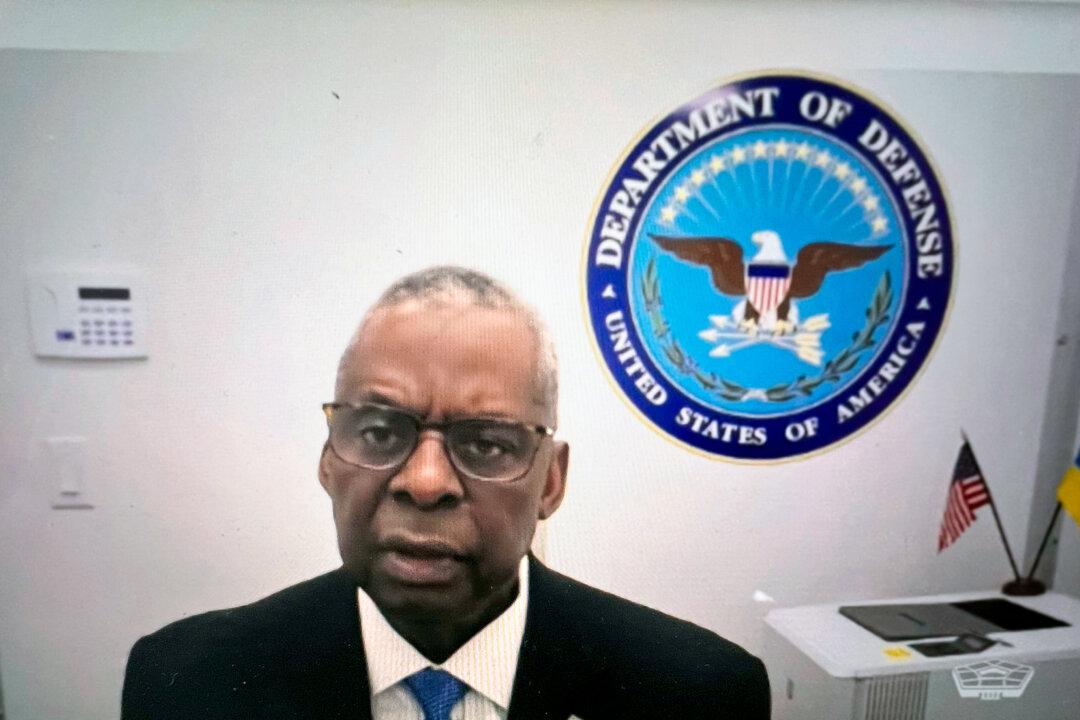The U.S. defense secretary on Jan. 23 appeared for the first time in public since his secret hospitalization, logging onto a meeting from his home.
Defense Secretary Lloyd Austin, 70, attended a meeting of the Ukraine Defense Contact Group.

The U.S. defense secretary on Jan. 23 appeared for the first time in public since his secret hospitalization, logging onto a meeting from his home.
Defense Secretary Lloyd Austin, 70, attended a meeting of the Ukraine Defense Contact Group.